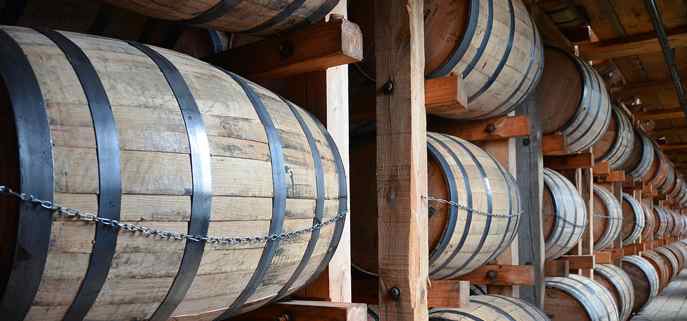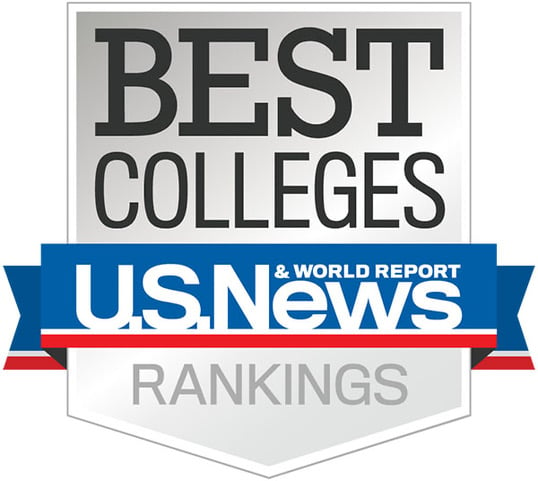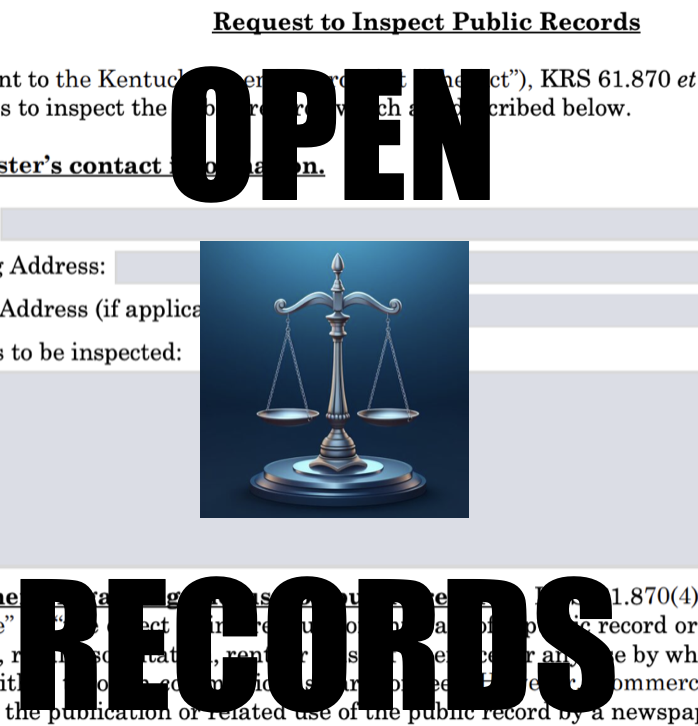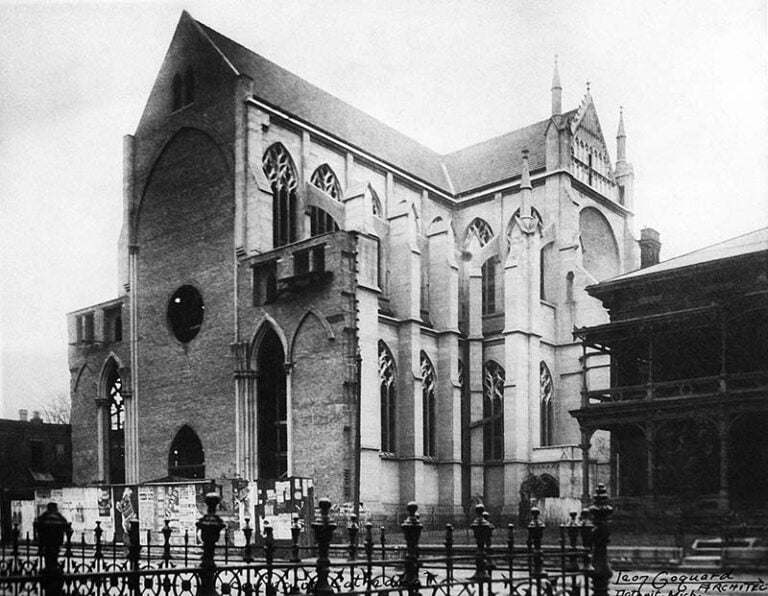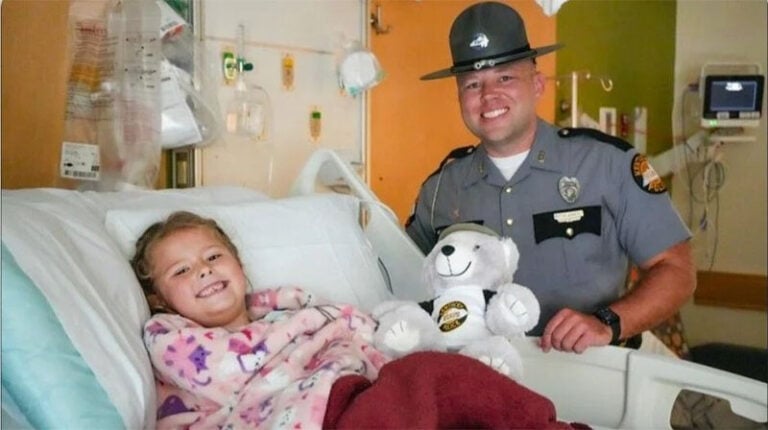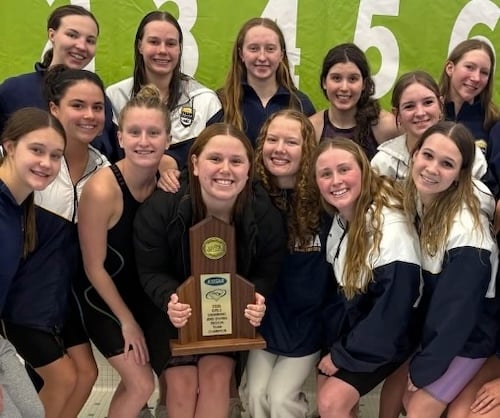By Kristy Robinson Horine
Special to NKyTribune
Wilmore Mayor Harold Rainwater sits in his truck intently watching the tree line where the gravel road is. It’s a cold morning, but Rainwater has the warmth of his coffee, his faithful canine companion Atlas and the knowledge that his waiting will produce good things.
Rainwater is the director of the Asbury University Equine Center. After 45 years with the university, he has scaled back somewhat. He now teaches two classes – Riding Instruction Certification and Training – in addition to managing the daily operations of the center.
“I have 86 horses, seven staff and 343 acres. I have 125 students, and we have projects going on all the time. That’s part of my job, to make sure it goes all together,” he says.
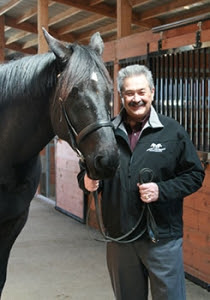
On this chilly morning, the horses await their morning feed. To his right is the barn, which houses classrooms, a fully equipped tack room, stalls, and an indoor arena.
When the first of four dump trucks rumble across the drive, Rainwater smiles. The trucks are the fruit of work he started last fall.
“We helped with the Breeder’s Cup and had 25 students who worked that event. They were hosts and drove golf carts around and our kids did a great job,” he explains. “What Keeneland saw was a focused group of kids doing good things.”
On a whim, Rainwater asked a question of Keeneland: Would they consider donating the polytrack they had just taken up from the racecourse to Asbury University’s Equine Program?
Keeneland’s answer was yes and when the weather was fine enough to do the transport, the trucks filled with donated polytrack came rolling in.
“It’s a big deal. That’s the entrepreneurial part of it I enjoy. Putting something together,” he says.
The biggest deal, however, is the investment Rainwater makes on a daily basis. Through his actions and his words, he invests in the people and in the places he loves. And it’s making a huge difference in this Jessamine County town of 6,000 people.
An investment in people
“I tell folks here,” he says, indicating the equine complex around him, “What is important is God, people and horses— in that order. In life, it’s God, family, other people, and then your job.”
With so many hats to wear – mayor, teacher, husband, sibling, Christian, director, board member, citizen — keeping that perspective is difficult at times. But Rainwater makes the investment in people an intentional act.
“I’m blessed with pretty good energy and pretty good health and good coffee. Grateful for that,” he says and lifts the still steaming cup to his lips. “So, I have the ability to get a 12-hour day if I need to. I know that there are certain things that take precedence. My classes are important and unless there is an emergency, I will be in class when I am supposed to. When I need to be in city hall, I will be in city hall. And when I need to be with family, I will be with family.”
It’s not unusual for Rainwater to drive an hour to spend time with his son and his grandchildren, then drive an hour back to Wilmore. For the past 30 years, he has met with which of four Rainwater brothers is in town on Friday nights in the back corner of McDonald’s. When his mother and mother-in-law were living, he and his wife Sherry, dedicated a year to honoring their mothers with service and care.
“We have no regrets for what we did. We did what we had to do,” Rainwater explains.
Doing what they felt they needed to do didn’t just happen by accident. It happened because Rainwater’s own family modeled this godly behavior.
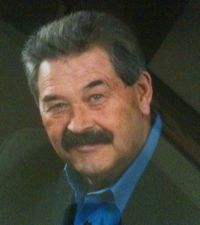
“I would love to be considered equal to my dad if I could be that good a man. He only went to the eighth grade but he was the smartest man I ever knew,” he says. “He made each of us boys think we were the most important person on this earth.”
Rainwater tells how his mother used to have at least 20 framed pictures of each of the brothers that she placed on the mantle. When one brother visited, he would remove all the pictures of his other brothers, so there would be 20 pictures of only one son up there.
“That was a joke, but it made us love each other and value each other,” Rainwater says. “We were as diverse as four brothers could be by what we do, but that family passion that Dad and Mom created for us is what I think he wanted for us. To be salt and light of the earth. You can’t salt the whole earth, but you are responsible for where you are. You invest in what you can.”
Rainwater has learned over the last 40 years as Wilmore’s Mayor that the investment goes beyond familial ties. He invests in those who live and work right around him every day.
At each council meeting, Rainwater intentionally spotlights employees who have done something well, putting their pictures on the proverbial mantle.
“We don’t want to catch you doing something wrong. We want to catch you doing something right that becomes a model for someone else,” he explains. “And we have found that the other employees, who we also want to keep around, want to be spotlighted.”
In addition to this intentional spotlight, Rainwater makes certain all employees are trained at the same level as those in the larger cities around Jessamine County. That means he also has to pay them according to their value so they will stay in Wilmore.
“It goes back to investment. How you invest in people is that you pay them,” he says.
The riches of Wilmore
In the early seventies, Wilmore was home to a club of men between the ages of 21 to 35. This club, the Jaycees, was intended to help make men become men, Rainwater says. When he was in his early twenties, he joined the Jaycees who assigned him a community project.
“We had a little park in Wilmore and my job was to raise a thousand dollars and improve the park,” he says. “The guy that was head of the Jaycees, he ran for the city council. That was his community project, to get involved with city government. I thought, now, that’s interesting.
Even though he knew very little about what a city council was, he knew they cared about the town. He ran and got in.
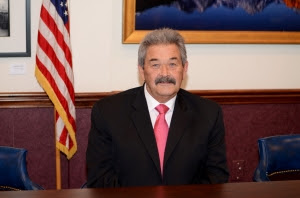
Over time, Rainwater advanced his political position when then-mayor, Dr. Joe Thacker, developed health problems.
He learned by doing, and he valued his town. Over the past forty years, Rainwater has steered Wilmore through constructing new water and sewer systems, building a certified, accredited police department, lowering the fire rating, investing in fire trucks and men and women for training and hiring a full-time parks and recreation director.
The police department is now a staff of nine, including the chief. The fire department is all volunteer with a chief and an assistant paid a monthly stipend.
“We’ve tried to do everything that we did award-winning. Not for the sake of a plaque on the wall, but doing it as well as we could,” he explains. “We’ve added all the components that make a town a town. We have 31 full time employees, a volunteer fire department, a police chief and an assistant chief. I know somebody is taking care of city hall. I know we are safe in this community.”
In order to maintain the city he helped to build, Rainwater also finds the time to serve on multiple boards and councils that impact his family, his town, and the state. He serves on the board of directors for the Kentucky League of Cities and serves on the Kentucky River Authority. In addition, because of his status of mayor in the Bluegrass Area Development District, he has a position on the board there.
“To be a good board member, you need to do more than go to the meetings. You need to be willing to go out and look at the locks and the dams and so forth, and the park and the center,” he says. “The ADD is one of the best things that has ever happened to regional planning. I personally believe in the leadership, I believe in the mayors and the judges that are in Central Kentucky. I’d say 99 percent of them are only interested in their communities being better.”
As Rainwater continues to watch the trucks unload their polytrack, he knows that every investment he makes – including the time he’s taking right this minute – is worth it.
Kristy Robinson Horine is a freelance writer based in Paris. She wrote this story for the Bluegrass Area Development District.







